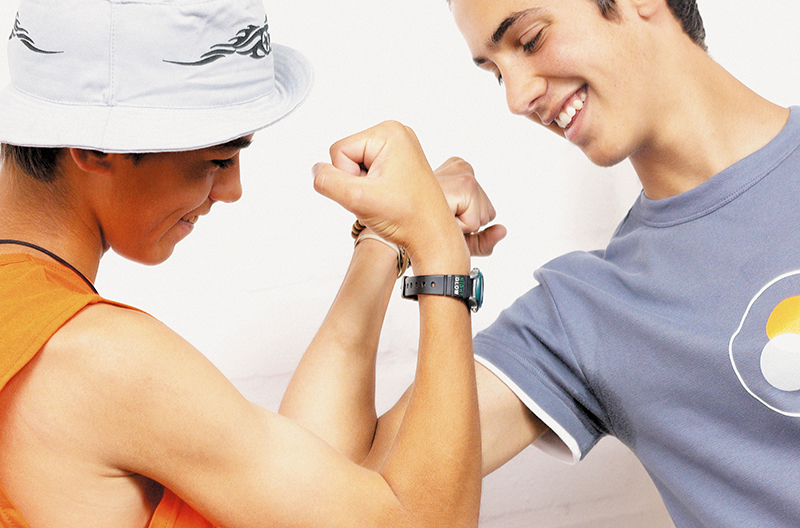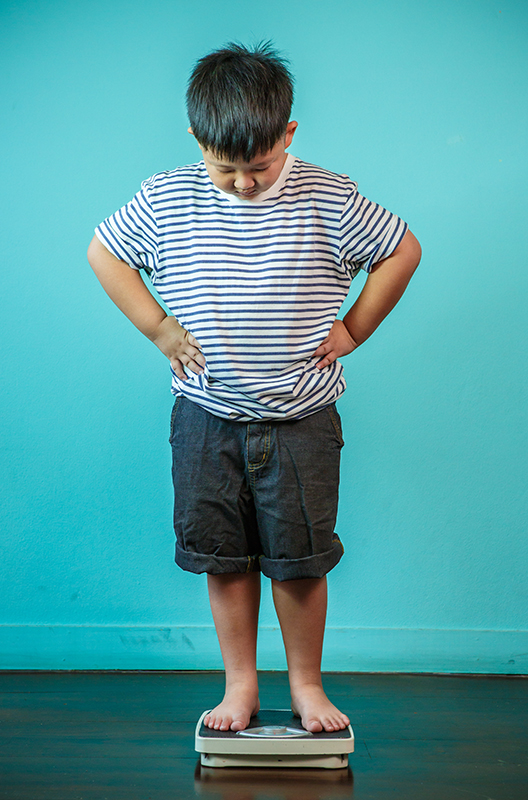
Male Body Issues in Teens That All Parents Should Know
Could Your Son Have a Body Image Problem and What Should You Know?
Male body image is a topic you will hear more about in the future. Just as the average female runway model has gotten thinner, the average male Playgirl model has gotten thinner and more muscular. Boys are feeling the pressure to look like the media images they see, sometimes with dangerous consequences.
Media Pressures

What is the perfect male body?
If you watch TV or read a magazine, it's clear what is considered an ideal body for a man. Low body fat and lots of muscle make you look “cut” or "ripped”—and that is what is portrayed as attractive. Throw in a narrow waist and large shoulders, giving the body a V-shaped torso, and you have the idealised male body.
Where are our boys getting these ideas? Although there is not nearly enough research on this issue, some researchers are examining the messages our boys are getting. Men's bodies are being used more often to sell products-–products often unrelated to the body or personal care. Our young boys are even being exposed to more unrealistic images of what a “man's” body is supposed to look like. In the past 20 years, action figures like G.I. Joe have become more muscular and their muscles are more defined. This has gone on to the point where if the action figure was a real person, it would be impossible for anyone to have the same proportions!
If you look at any magazine, the male bodies are idealised and, like female bodies, airbrushed and tweaked to look as appealing as possible. From TV to magazines to beloved toys, it's difficult for our sons to avoid the images of what is thought to be a perfect body.
Cultural Differences
Is the media and our culture truly to blame?
It seems that way. An article in the Harvard University Gazette looked at the differences in body image in men from the West (the United States and Europe) versus men from Asian countries. It was found that men in Taiwan were more satisfied with their bodies and had a lower use of anabolic steroids compared to men in the West. The article suggests that the Taiwanese culture values men for their intellectual and cultural achievements, not just their bodies. Additionally, unlike in the US, there were no Taiwanese magazines for fitness or bodybuilding. It makes sense that if men are being valued for things other than attractiveness, and that they aren't being shown idealised bodies that might not be attainable, that they would have a more accepting view of their own bodies.

Social Media
In addition to the school setting and TV shows, social media has added an entirely new way for teens to be exposed to the ideal body image while at the same time as being more concerned about their own appearance. A negative comment about a teen's appearance in response to an update, for example, can be devastating. One study looking at the impact of social media upon body image found that areas which were particularly problematic were viewing and uploading photos and seeking negative feedback via status updates for both girls and boys.
Body Image of Boys vs Girls
The answer to whether boys or girls are more dissatisfied with their body image is that is no one is sure. What we do know is that there is evidence that boys and men are beginning to feel the pressure to have a “perfect body.” One study showed that men were significantly dissatisfied with their bodies, seeing themselves as having more fat than they really had. Surprisingly, although they thought they were “fatter” than they really were, the men in the study saw themselves as more muscular than they really were.
Another study found that men were just as dissatisfied with their body weight as the women.
The women overwhelmingly were dissatisfied with their weight because they felt they were too heavy. The men were evenly divided between two camps. One group of men felt they were overweight. The other group of men thought they were underweight. This study suggests that men have two Pressures—the pressure to be lean and the pressure to build large muscles.
It isn't clear at this time who is more dissatisfied with their bodies or if male body image is deteriorating. The research is pointing in both of those directions, particularly as the consequences of a poor body image are on the rise in men—eating disorders in men and body image disturbances in men.

The Consequences of Expectations
Men are spending more time, money and energy on looking “good.” They are spending more money on fragrances, facial creams, hair products, hair replacements, and even plastic surgery. If your son is spritzing on a little more cologne, it is probably a healthy grooming habit. If your teen is talking about crash diets or liposuction, there might be more of a problem.
One large study looked at men's body satisfaction and how it related to depression, eating disturbances, use of performance-enhancing substances and low self-esteem. Not surprisingly, men who were dissatisfied with their bodies had higher rates of depression and eating disorders. Dissatisfied men used more performance-enhancing substances such as over-the-counter supplements or anabolic steroids and had lower self-esteem. The results of the study reflect what seems like common sense. If someone has a poor body image, he might take steps to change his body, even if it means restricting food to a dangerous degree or taking potentially harmful substances.
When to Worry
An estimated 10 percent of people who get help for an eating disorder are men, but some think that this number is too low. If your son seems to be preoccupied with his appearance, restricts what he eats, uses supplements, or exercises excessively, it is time to discuss body image with him. If you feel as if his behaviour is potentially harmful, discuss your concerns with your paediatrician. She can help you handle this difficult issue, or refer you to a professional who can help.
How to Encourage Good Body Image
Even if your son does not seem to be preoccupied with his appearance or exhibit behaviours which concern you, you can be certain that he has at least thought about his body image. A 2016 Australian study on children aged 12 to 18 found that nearly 50 percent of these teens admitted to concerns about their appearance.
By: Barbara Poncelet
Verywell Family
Published: May 07, 2018


